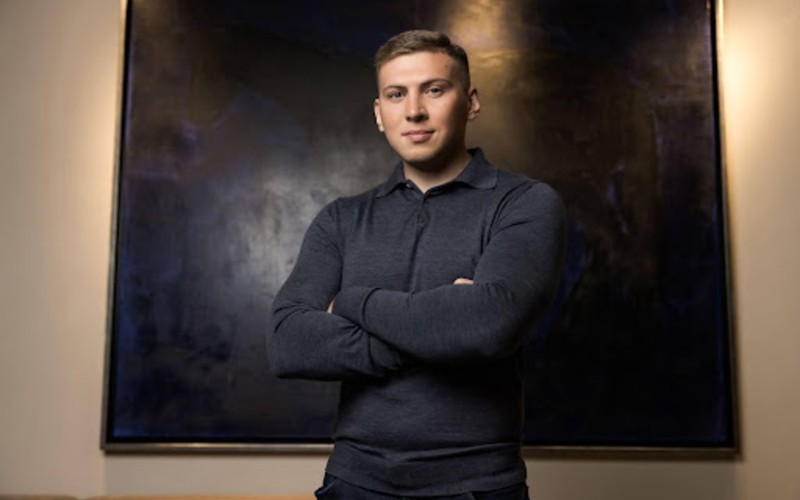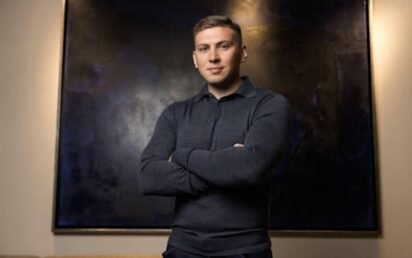Russia’s full-scale invasion has rewritten the rules of business in Ukraine, blending commercial goals with civic duty. 3 years on, businesses routinely dedicate cash, trucks, and talent to aid convoys and reinforce defenses. Today’s business leaders gauge success not just by revenue, but by how well their companies shore up the nation’s resilience.
Surveys confirm that Ukrainians reward companies that stand beside the Armed Forces or fund community rebuilding. In this climate, purpose is not window dressing; it is a flywheel for durable growth and talent loyalty. Investor and entrepreneur Ruslan Tymofieiev explains how the CLUST company’s frontline initiative has strengthened stakeholder trust, attracted top-tier talent, and set the venture builder firmly on a purpose-driven growth path.
How Does Social Investing Work?
Social investing is the practice of dedicating a company’s money, expertise, and resources to address a specific social issue. Top companies select a CSR theme aligned with their business or the founder’s values, then quickly test it through market research and user interviews. Execution can be as simple as redirecting logistics to deliver aid or funding scholarships connected to the product’s domain.
Ruslan Tymofieiev notes that initiatives with visible impact resonate with Gen Z and Millennial talent, giving responsible employers an edge in recruitment and retention. Younger buyers and workers grew up in an era of instant transparency, where social media exposes every supply-chain slip in real-time, so only genuine action earns their trust. They also came of age amid climate emergencies, economic crashes, and — in Ukraine’s case — full-scale war, experiences that convinced them businesses must step in where governments fall short. Consequently, they shop, invest, and choose jobs mainly with brands that can demonstrate measurable social impact.
Priority Sectors for Responsible Investment
During the war, Ukrainian companies are directing their donations to a few key areas that meet the country’s biggest needs and support its recovery:
• Direct aid to soldiers and civilians. Companies underwrite entire reconnaissance-drone squads, purchase night-vision optics, and finance armored evacuation vehicles for combat medics. For civilians, they stock frontline towns with generators, water-filtration units, and trauma kits, using their own logistics networks to deliver supplies whenever the shelling eases. Employee volunteer programs organize winter coat drives and offer free legal assistance to displaced families.
• Green reconstruction. War has scarred forests, farmland, and riverbanks; firms are funding reforestation drones, soil-remediation labs, and solar microgrids that replace bombed-out substations. In-house sustainability teams recycle broken concrete into road-building aggregate, reducing both waste and carbon emissions.
• Education reboot. Donations repair damaged campuses and connect them via satellite internet, while grants fund teacher retraining in artificial intelligence, cybersecurity, and English immersion.
• Healthcare reinforcement. When the full-scale invasion severed supply chains, hospitals ran dangerously low on essential medicines and supplies. Ukrainian companies quickly tracked down the last domestic supplies, secured essential medications from abroad, and set up fast delivery networks.
• Technology for good. Impact-driven teams build offline-first learning apps that sync when connectivity returns, low-bandwidth telemedicine platforms that transmit vitals via SMS, and digital ID wallets that streamline benefits for veterans and IDPs. These solutions are later licensed abroad, proving that social tech can scale commercially.
Countless avenues exist — whether you team up with established NGOs or roll out your projects. What’s essential is to keep social responsibility at the core of your efforts and inspire other businesses to do the same.
CLUST SPACE: The Smart Shelter Driving Social Impact Agenda
Ruslan Tymofieiev and his team chose to focus on modern safety infrastructure for Ukraine’s universities. As a venture builder rooted in EdTech, education has always been his priority — yet the war exposed a new urgency: safe and continuous learning. Most campus bomb shelters were built solely for riding out air-raid alerts, not for studying or resting. The team shifted focus, transforming those shelters into fortified, fully equipped learning hubs. The result is CLUST SPACE, a smart shelter model that keeps classes running even during air-raid alerts.
Design blueprints for the pilot CLUST SPACE at KPI have been signed off, with Peker & Partners providing architectural expertise and KNUBA students contributing 3-D models and structural calculations. The concept of CLUST SPACE introduces a flexible environment that can shift between a bomb shelter, coworking hub, conference venue, recreation lounge, and sports zone. By coupling this adaptable design with partnerships across Ukraine’s universities, the initiative unites safety and learning, giving future IT specialists a secure, multifunctional setting for study and collaboration. It also offers a new channel for tech companies to run career-guidance events and strengthen ties with the next generation of talent.
Benefits Of Corporate Social Responsibility
Ruslan Tymofieiev stressed that corporate social responsibility isn’t just altruism — it’s a growth lever. A consistent focus on social impact yields business advantages:
• Reputation Lift. Stakeholders associate your logo with contribution, not just profit, elevating brand equity in a crowded market.
• Customer Stickiness. Shoppers routinely choose — and stay loyal to — brands that align with their values on sustainability or community aid.
• Talent Magnet. Purpose-driven projects attract top talent seeking meaningful work while lowering hiring costs and boosting retention.
• Partnership Catalyst. Collaborative social programs encourage suppliers, NGOs, and government agencies to innovate together, reinforcing the broader business ecosystem.
• Media Amplifier. Ruslan Tymofieiev believes that impactful CSR naturally attracts media attention, boosting brand visibility without additional advertising costs.
Ruslan Tymofieiev argues that meaningful change occurs when companies apply their core strengths — logistics networks, data science, and design labs — to tackle systemic problems. The payoff runs deeper than quarterly profits: stronger stakeholder loyalty, richer talent pipelines, and a healthier planet on which to keep doing business. In that sense, every genuine social project is just enlightened self-interest.


